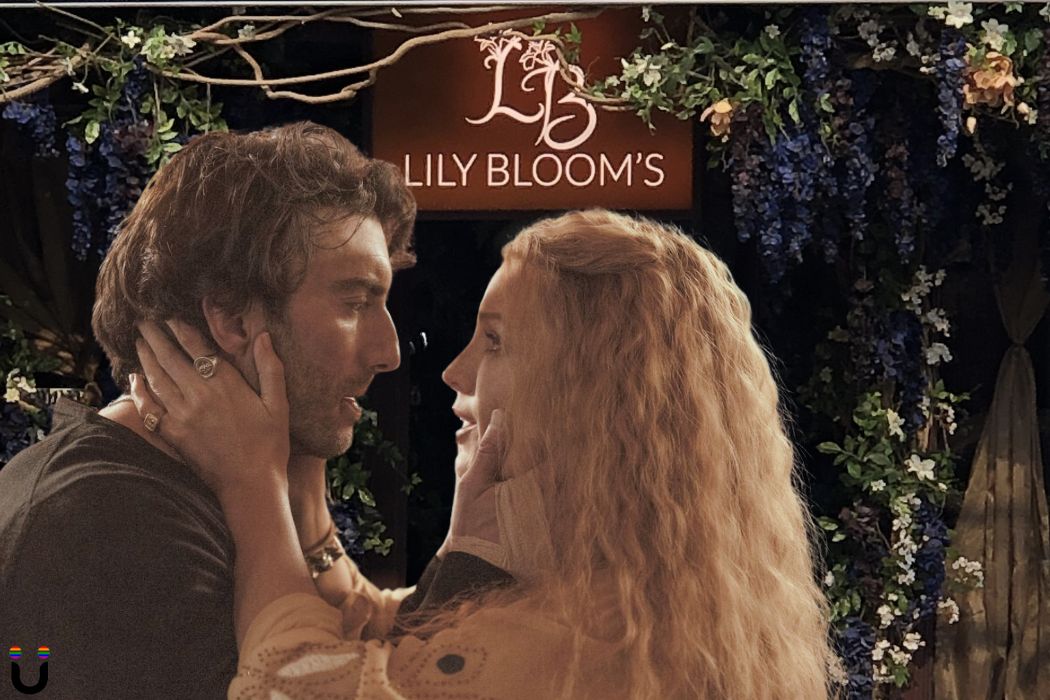If you've spent time scrolling through Instagram, you’ve probably seen those thoughtful illustrations about breaking the cycle of intergenerational trauma. The message is always clear: this trauma - it ends with us. But anyone working through it knows—it’s no easy.
It Ends With Us, a movie that recently took India and the world by storm. Within 36 hours of its release, I had two therapy sessions where clients brought up their own intergenerational trauma,triggered by the movie. Their desire to break the cycle of trauma was palpable, but the focus of our sessions was on finding the courage to challenge deeply ingrained patterns. Clearly, the movie struck a nerve.
Intergenerational trauma is when trauma experienced by one person in a family is passed down to future generations. This pain often becomes so ingrained that we don’t even realise it’s shaping our thoughts and actions. We grow up accepting certain behaviours and beliefs because they feel "normal"—but that doesn’t mean they’re healthy.
Before diving in, it’s important to define psychological trauma: emotional distress caused by an event or series of events that overwhelms someone’s ability to cope. This could stem from physical, emotional, financial, or psychological abuse. And while many associate trauma with physical violence, it can take many forms, affecting both the victim and those who witness it.
What makes intergenerational trauma particularly complex is how it shows up in unexpected ways. It can shape our relationship with food, how we dress, how we perceive safety, or how we interact with others. Many of these inherited patterns are so deeply rooted that they feel like second nature, leaving us unaware of the trauma we’re carrying.
In It Ends With Us, intergenerational trauma is addressed through the lens of domestic violence, specifically the trauma of witnessing abuse at home. While the movie is set in a Western context, the silent suffering of a mother enduring abuse is all too familiar in Indian households (Dear Darlings).
In India, where patriarchy runs deep, generational trauma often stems from women silently accepting abuse while boys grow up believing it’s normal to disrespect their partners. The casual jokes about wives or the suppression of women’s voices may seem subtle, but these are clear signs of the patriarchy’s hold.
Let’s be clear: any form of oppression is abuse.This includes whether it’s making someone feel small, instilling fear to control, denying them what they need, or burdening them with unfair expectations, is abuse.
The movie shows three distinct moments where Lily Bloom experiences domestic violence, each worse than the last. The brilliance of the storytelling lies in how it mirrors the reality many victims face—justifying the abuse. We rationalise the first slap or push, convincing ourselves that it’s an accident. The truth, however, is harder to face: acknowledging the aggression forces us to confront the possibility that someone we love could deliberately hurt us. For many women, this realisation is heartbreaking and can often feel like betrayal that bring about its own sense of betrayal trauma. Admitting that your love story isn’t what you thought it was, and that the person you cherish is capable of harm, shatters your sense of emotional safety. It could even admit you did not choose better than your mother and your faiths seem more intertwined.
Acknowledging abuse is one of the most difficult steps. In India, patriarchy doesn’t just hurt women—it harms men, too. Boys grow up learning that aggression and emotional detachment are the only acceptable ways to express their feelings, while girls are taught to bear their pain silently. These toxic norms reinforce abusive behaviors across generations. Paitriarchal oppression, a form of abuse, masquerades as culture making it harder for one to question it or choose differently.
Lily’s story reflects this cycle. Her mother stayed in an abusive marriage, and Lily witnessed this growing up. But, unlike her mother, Lily finds the courage to leave, seek help, and rely on the support of her loved ones. Walking away from an abusive relationship is never easy. Lily’s mother highlights this struggle when she says, “Leaving would be harder.” And she’s right. Despite social progress, many women still find it difficult to leave abusive situations due to societal expectations, fear, and isolation.
Globally, 40% of women who die by suicide are from India, and most of them are married. In 2014 alone, over 20,000 housewives took their own lives. Despite the grim statistics, the cultural narrative in India still glorifies women’s subservience, reinforcing the belief that their silence is noble.
Cisheteropatriarchy—where women are expected to conform to impossible standards—plays a significant role in this. It teaches us to accept dysfunctional marriages, often with the false belief that staying together "for the children" is the right thing to do. Yet, this burden only shifts the trauma onto the next generation.
Addressing intergenerational trauma is especially difficult in a culture where mental health carries such heavy stigma. Many women are discouraged from seeking therapy, further trapping them in cycles of abuse.
However, as It Ends With Us reminds us, we can choose a different path. In the film, Lily makes a pivotal decision to divorce her abusive husband, Ryle, after asking him three simple questions each reflecting if he would be okay if their daughter stayed with an abuser? His immediate response—“no”—forces him to recognize the gravity of the situation. This moment is a powerful reminder for all of us to ask ourselves the same question: Would we tolerate the same behavior if it were happening to someone we love? (Victim) or if we were on the receiving end of this abuse? (Abuser)
If the answer is “no,” then it’s time to make a change.
Intergenerational trauma doesn’t just affect our emotional health—it leaves a physical mark too. In a 2001 study, neuroscientist Rachel Yehuda found that adult children of Holocaust survivors reported significantly higher levels of trauma. Her research suggested that trauma can be passed down genetically through stress markers, further highlighting how deeply it can affect future generations.
This research shows that trauma isn’t just a personal burden. It becomes part of the family legacy, influencing how we cope with challenges, relationships, and emotional pain.
As It Ends With Us shows, love is complex. Lily still cares for Ryle, but she also understands that love requires setting boundaries. You can love someone while also recognizing that the way you engage with each other/ the relationship you share may not be healthy for you. Ending a cycle of trauma doesn’t mean erasing your feelings—it means choosing safety and healing.
Breaking the cycle of intergenerational trauma takes immense strength, but it is possible. Like Lily, we too can recognize the patterns, seek support, and make the choice to heal. We don’t have to internalize our emotions or suffocate under the weight of past pain. With courage and help, we can build healthier futures for ourselves and the generations that follow.
“Here is not a bad place to start.”
By recognizing our trauma and taking steps to heal, we have the power to stop the cycle—both for ourselves and for future generations.


